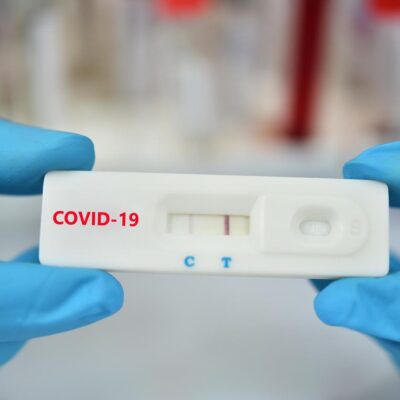Flax seeds are not just a simple garnish for oatmeal or a vibrant acai bowl; they are a remarkable food packed with numerous heart-healthy advantages and protective properties. Despite their small size, flaxseeds (also known as linseeds) are brimming with essential vitamins, nutrients, plant-based fiber, protein, and fatty acids.
In fact, flax seeds boast the highest concentration of alpha-linolenic acid (ALA), a vital omega-3 fatty acid, among all plant sources. This remarkable quality elevates flaxseeds to the status of a superstar superfood. Nutrition experts are eager to highlight the top health benefits of incorporating flax seeds into your diet and provide additional suggestions to maximize their advantages.
Historical Background:
Flax seeds have recently received recognition as a superfood, but they have actually been cultivated for thousands of years, dating back to the earliest civilizations. Derived from the flax plant, Linum usitatissimum, flax seeds were originally grown for their fiber, which was used in the production of clothing and linens as early as 3000 B.C.
Traditionally, flaxseeds were incorporated into breakfast cereals and bread. However, the past decade has witnessed the development of a wide range of flax-based products targeting the health food market. This surge in popularity can be attributed to the versatility of flax seeds as a super seed that can be sprinkled onto various dishes, such as yogurt, salads, smoothies, oatmeal, and cereal, enabling individuals to benefit from their incredible nutritional properties in countless ways.
Health Benefits:
Flax seeds are Fantastic For Digestion.
For individuals struggling with irregularity, flax seeds can play a crucial role in alleviating constipation. According to Meghan Sedivy, RD, LN, a health and lifestyle expert at Fresh Thyme Market, flax seeds are rich in fiber, making them beneficial for digestive health. These tiny gems provide a substantial amount of both soluble and insoluble fiber, which can make a significant difference. Insoluble fiber aids in the movement of material through the digestive system, increasing stool bulk. By incorporating a fiber-rich diet, you can enhance stool size and weight, softening it to facilitate regularity and prevent constipation.
A Valuable Protein Source.
Protein serves as a vital building block for the body, contributing to the development of bones, muscles, cartilage, and skin. Interestingly, protein constitutes a major component of hair and nails. Flax seeds offer an excellent source of high-quality plant-based protein, making them a noteworthy alternative to animal protein sources. Even a teaspoon of flaxseeds contains nearly 2 grams of protein, presenting a viable option for individuals seeking to increase their protein intake. Enhancing your protein levels can be as simple as incorporating flax seeds into your salads or smoothies, allowing you to enjoy the benefits of this protein-packed superfood.
Potential Cardiovascular Benefits.
Cardiovascular disease is the leading cause of death in the United States, as reported by the Centers for Disease Control and Prevention (CDC). Flaxseeds have shown promising effects in protecting heart health by targeting various risk factors associated with heart disease, including:
- Blood pressure reduction: A comprehensive analysis of 15 studies, published in Clinical Nutrition, revealed that flax seeds have the potential to lower blood pressure, especially when consumed consistently for a duration of 12 weeks or longer.
- Improvement in cholesterol levels: In a study involving 50 adults with high cholesterol, those who incorporated approximately three tablespoons of roasted flaxseed powder into their daily diet for three months experienced significant reductions in total cholesterol and LDL (commonly known as “bad” cholesterol) levels, surpassing the results observed in the placebo group. Additionally, their HDL (known as “good” cholesterol) levels showed improvement.
By incorporating flax seeds into your diet, you may take advantage of their potential cardiovascular benefits, which can contribute to maintaining a healthy heart and mitigating the risk of heart disease.
Reducing Cancer Risk.
While it is important to note that no single food or supplement can completely prevent cancer, research suggests that incorporating flax seeds into your diet may potentially help in reducing the risk or spread of certain types of cancers.
Colorectal cancer, for example, may be influenced by the high fiber content found in flax seeds. Studies have shown that for every additional 10 grams of fiber consumed, there is a 7% decrease in the risk of developing colorectal cancer.
Among the various cancers studied in relation to flax seed consumption, breast cancer stands out as one of the most extensively researched. A review published in Nutrients indicated that consuming flax seeds may have the following effects:
- Protection against the development of breast cancer.
- Reduction in tumor growth in women already diagnosed with breast cancer.
- Lower risk of death in women with breast cancer.
While further research is needed to establish the full extent of flax seeds’ potential in reducing cancer risk, incorporating them into your diet may offer some benefits in terms of cancer prevention and management, particularly in relation to colorectal and breast cancers.
Potential Blood Sugar Improvement.
In a study involving 41 individuals with obesity and pre-diabetes, different groups were given daily doses of 13 grams, 26 grams, or 0 grams of flax seeds over a period of 12 weeks. The results revealed that those who consumed 13 grams (approximately two tablespoons) of flax seeds experienced the most significant reductions in blood sugar levels and improvements in insulin sensitivity. This suggests that flax seeds might have a positive impact on blood sugar regulation.
Aiding Weight Management.
Incorporating flax seeds into your diet can contribute to healthy and sustainable weight management, primarily due to their high content of soluble fiber. The soluble fiber found in flax seeds, particularly the mucilage component (comprising 35-45% of the fiber), forms a gel-like consistency when combined with water. This gel-like substance slows down the digestion process, keeping you feeling fuller for a longer duration, as highlighted in a 2015 article published in the Journal of Food Science and Technology.
A meta-analysis examining 45 studies discovered that consuming whole flax seeds was associated with significant reductions in both body weight and waist measurements. It is worth noting that having a waist measurement exceeding 35 inches for women or 40 inches for men is linked to an increased risk of heart disease and type 2 diabetes.
Additionally, the review revealed that consuming 30 grams (approximately three tablespoons) of whole flax seeds daily for more than 12 weeks led to improvements in body composition. Body composition provides insights into the distribution of fat, muscle, and other tissues within the body.
By incorporating flax seeds into your diet, you may potentially experience improvements in blood sugar levels, as well as support healthy weight management and body composition.
Reducing Skin Inflammation.
Flax seeds offer not only internal nutritional benefits when consumed regularly but also significant advantages for skin health when applied topically. The high concentration of anti-inflammatory omega-3 fatty acids in flax seeds makes them effective in reducing inflammation within the skin. Moreover, flax fiber has been found to possess healing properties for the skin.
In a small-scale study, it was observed that women who incorporated flaxseed oil into their daily skincare routine experienced improvements in skin elasticity, enhanced hydration levels, and a brighter complexion. These findings highlight the potential of flaxseed oil in promoting healthier and more vibrant skin when used topically.
Enhancing Muscle Development in Men.
Flax seeds are considered a valuable superfood for individuals engaged in bodybuilding and muscle development. A 100-gram serving of flax seeds provides approximately 25 to 30 grams of protein, making it a beneficial protein source for muscle growth.
One of the notable components in flax seeds is alpha-linolenic acid (ALA), which has been found to improve insulin sensitivity within muscle cells. Additionally, ALA helps prevent the storage of fat in muscle tissue, which can further contribute to enhanced muscle development.
Flaxseed oil, derived from flax seeds, serves as an excellent source of energy, particularly beneficial for athletes and individuals with high-calorie expenditure during workouts.

Regarding prostate health, studies examining the association between ALA intake and prostate cancer have yielded mixed results. However, research suggests that consuming flaxseed (at a daily intake of 30 grams) may offer potential benefits for men with a precancerous prostate condition by inhibiting tissue growth.
Incorporating flaxseeds into the diet can potentially support muscle development in men and provide additional benefits for prostate health. It is important to consult with a healthcare professional or nutritionist to determine the appropriate intake and ensure it aligns with individual dietary and fitness goals.
Nutritional Profile:
Despite their small size, flax seeds are incredibly nutrient-dense. Just a quarter cup (about four tablespoons) of whole flax seeds provides the following nutritional values:
- Calories: 224
- Fat: 17.5g
- Saturated Fat: 1.5g
- Unsaturated Fat: 16g
- Sodium: 12.6mg
- Carbohydrates: 12g
- Fiber: 11.5g, equivalent to 41% of the daily value (DV)
- Added Sugars: 0g
- Protein: 7.7g
- Thiamin: 0.69mg, contributing to 57% of the DV
- Magnesium: 165mg, accounting for 39% of the DV
- Selenium: 7.12mcg, providing 19% of the DV
- Iron: 2.4mg, supplying 13% of the DV
Flax seeds are particularly notable for their high thiamin content, which is a B vitamin that aids in the conversion of nutrients into energy. Magnesium is another noteworthy nutrient found in flax seeds, playing a vital role in nerve, muscle, and immune function. Selenium acts as a protective agent for cells, guarding them against damage and infection. Lastly, iron is essential for the production of red blood cells, which are responsible for carrying oxygen throughout the bloodstream.
By incorporating flax seeds into your diet, you can benefit from their rich nutritional profile, which includes an array of vitamins, minerals, and essential nutrients that support overall health and well-being.
Potential Risks:
While allergies to flax seeds are uncommon, it is important to note that some individuals may have an allergic reaction to them.
Flax seeds contain trace amounts of certain toxins, such as cyanide. However, the levels of cyanide present in flax seeds are extremely low, and the body has the ability to detoxify cyanide even in these small amounts. The likelihood of experiencing cyanide toxicity from consuming flax seeds is highly unlikely. Furthermore, cooking flax seeds destroys the chemical, further mitigating any potential risk.
It is advisable to be aware of any personal allergies or sensitivities and to consult with a healthcare professional if you have concerns about incorporating flax seeds into your diet.









